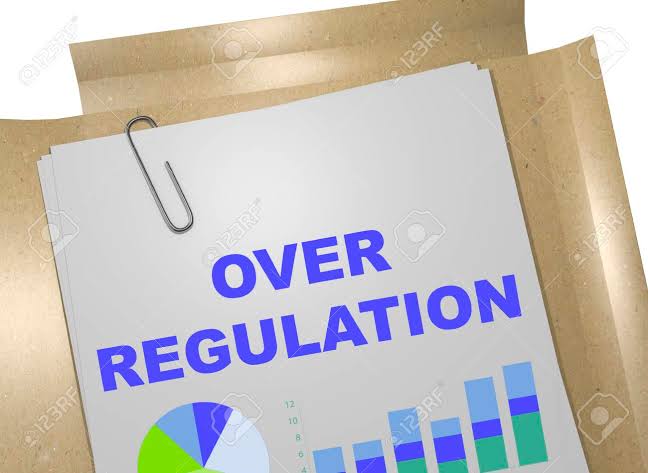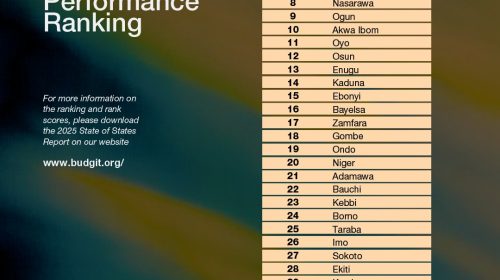Over Regulation, Threat To Business, Economy — OPS

Over-regulation by regulatory agencies topped the list of concerns of stakeholders in the real sector of the economy.
They insisted that in addition to poor infrastructure, over-regulation of the real sector by government agencies was another huge impediment to growth and ease of doing business in the country.
While sampling opinions of the Chief Executive Officers of manufacturing firms in the first quarter of 2019, it was discovered that over-regulation by all tiers of government ministries, departments and agencies was a major concern which the CEOs said depressed productivity in the manufacturing sector.
The industrialists complained that quite often, agencies of the federal, state and local governments regulated the same manufacturing process resulting in man-hour losses and multiple charges.
“It is imperative that the sphere of regulation for MDAs of each tier of government be properly delineated, streamlined and where possible harmonised,” the President, Manufacturers Association of Nigeria, Mansur Ahmed, said while unveiling the association’s CEO Confidence Index for the first quarter.
The activities of government regulatory agencies also caused a lot of concerns in 2018, leading to fears that more investors would leave the country after the exit of Sun International, a major investor with a 49 per cent stake in Federal Palace Hotel, which pulled out in 2016 following alleged harassment from the Economic and Financial Crimes Commission.
In its 2019 economic outlook, MAN reported that in 2018, businesses experienced frequent incidences of overbearing regulatory disposition, leading to increased burden on businesses, higher cost of operation, waste of executive time and reputational consequences.
“These manifested in the form of fines and charges that are sometimes difficult to justify, sanctions, and regular summons of corporate executives.
“These summons were serious distractions and had implications for travel/logistics costs, loss of executive time, disruptive effects on businesses and sometimes reputational downsides,” the association stated.
Concerns about multiple government agencies constituting clearing bottlenecks at the nation’s seaports led to an executive order by the Vice-President, Prof Yemi Osinbajo in 2017, that the agencies at the seaports be streamlined from over 14 to six.
While announcing the directive during a stakeholders meeting, the Managing Director, Nigerian Ports Authority, Hadiza Bala-Usman, said the order became imperative to enhance the ease of doing business, boost efficiency and security in the nation’s sea ports.
While setting agenda for President Muhammadu Buhari’s second term, the Director General, Lagos Chamber of Commerce and Industry, Mr Muda Yusuf, stressed the role of government agencies in facilitating economic diversification.
Yusuf said regulators should be seen to support the efforts of government to promote investment, rather than become a burden on business.
He maintained that regulatory agencies needed to be better funded by the government to reduce their dependence on fees, fines, levies for their operations.
He said, “Agencies of government need to be more investment- friendly. The recent initiative of the government on the ease of doing business is in consonance with this proposition.
“They should be facilitating investment growth rather than seeing themselves as revenue generating agencies. They should also consider the limitations faced by investors, especially the Small and Medium Enterprises in the economy.”







Leave a Reply